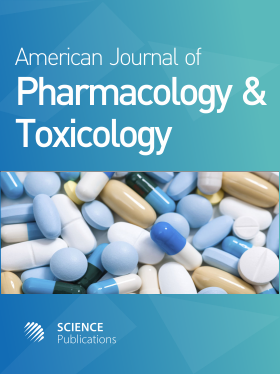Hepatoprotective Effect of Vitamin E
- 1 University of Port Harcourt, Nigeria
Abstract
Drugs and some chemical agents are known to induce hepatotoxicity in humans which is of great concern to clinicians. Chemical agents are been screen daily for their hepatoprotective properties. Among these chemical agents is vitamin E which has drawn wide attention due to it reported hepatoprotective property as reported by researchers. This study collected and evaluated reports to ascertain the hepatoprotective effect of vitamin E. A comprehensive literature review on the hepatoprotective property of vitamin E in humans and animals was performed. In this review it was observed that vitamin E exhibited high hepatoprotective effect in animals but with conflicting reports in humans. In humans vitamin E was reported to be beneficial in non alcoholic steatohepatitis, in obese children with non fatty alcoholic liver disease, hepatitis B, hepatitis C and haemochromatosis. In animals it was reported to normalized hepatotoxicity induced by drugs, and some chemical agents including heavy metals. Vitamin E exhibited hepatoprotective effect and decreased oxidative stress in the liver manifested through decrease in microsomal lipid peroxidation, liver fibrosis, tumor necrosis factor, inflammation and hepatic porphyrin. It normalized levels of alanine aminotransferase, aspartate aminotransferase, alkaline phosphatase, serum bilirubin, glutathione superoxide dimutase, lactose dehydrogenase, malondialdehyde and improved histopathological changes in the liver induced by chemical agents. Hepatoprotective property of vitamin E is attributed to it antioxidant property buried in it structure. Structurally, the side chain in the 2-position facilitates the incorporation and retention of vitamin E in biomembranes, so that the 6-position is optimal for scavenging free radicals and terminating lipid peroxidation. Furthermore, it antioxidant effect is exhibited through protection of poly unsaturated fatty acid from oxidation by reactive oxygen species, stabilization of membrane and breaking of antioxidant chains that prevent Reactive Oxygen Species damage to membranes. Vitamin E exhibited hepatoprotective effect in animals. It hepatoprotective effect in humans leaves more room for evaluation due to some discrepancies in report.
DOI: https://doi.org/10.3844/ajptsp.2012.154.163

- 4,452 Views
- 4,815 Downloads
- 18 Citations
Download
Keywords
- Vitamin E
- Antioxidants
- Liver
- Toxicity
- Protection
